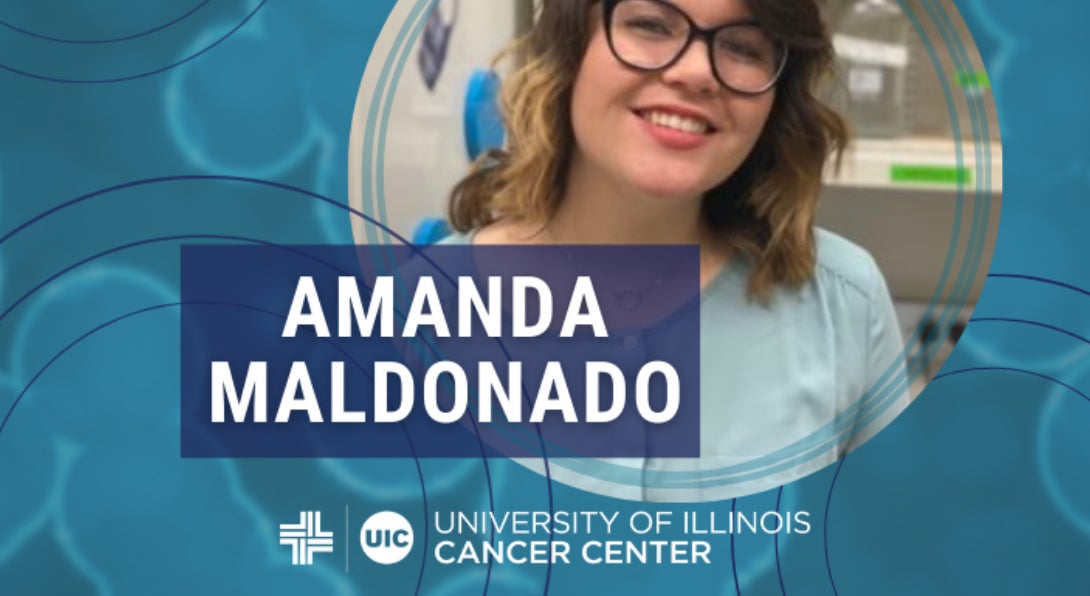UIC Ovarian Cancer Researcher Selected for Yale Academy

Fourth year University of Illinois Chicago doctoral candidate Amanda Maldonado is among 16 young science leaders welcomed to the Yale Ciencia Academy for Career Development, a National Institutes of Health-funded fellowship program to assist promising Hispanic and Latinx scientists transition into research careers.
Hispanic and Latinx students received roughly 4,000 of the nearly 56,000 doctorate degrees awarded in 2019, according to the National Science Foundation. The Ciencia Academy was created to support the academic interests and career goals of highly promising young scientists like Maldonado. Led by Yale University in collaboration with the non-profit organizations Ciencia Puerto Rico and iBiology, the program leverages one of the largest networks of Hispanic/Latinx scientists in the world.
Maldonado’s work focuses on medicinal chemistry, studying how metabolites produced from natural sources, such as fungi, bacteria or plants, may play a role in inducing cell death in high-grade serous ovarian cancer. As a member of University of Illinois Cancer Center member Joanna Burdette’s laboratory, Maldonado was recently part of a NIH T32 training grant to aid her research interests in natural products and women’s health.
Maldonado’s interest in natural products began as an undergraduate student, when her advisor began investigating caffeine-like substances — with an ability to cross the blood-brain barrier — for their therapeutic potential in the treatment of glioblastoma, an aggressive cancer that can occur in the brain or spinal cord.
“The compounds in nature are untapped reservoirs of disease-fighting potential,” Maldonado explained. “Cancer is complex and I enjoy complex problems, particularly those that are underfunded and have a huge unmet need, which is certainly the case for women’s health.”
Maldonado’s doctoral dissertation, which she hopes to defend in spring 2022, will focus on elucidating the mechanism of action of a fungal metabolite in high-grade serous ovarian cancer, the most malignant form of ovarian cancer. Following graduation, she is considering post-doctorate options either in NIH programs or industry. With her ongoing love of bench science, Maldonado’s long-term career goal may lead to a future as a principal investigator, like her mentor Burdette.
“Cancer research needs passionate scientists like Amanda, who are dedicated to finding new therapies for ovarian cancer and other cancers with large unmet needs,” Burdette said. “Her intellect and focus complement an innate curiosity that drives her work and I’m so proud of what she’s already accomplished.”